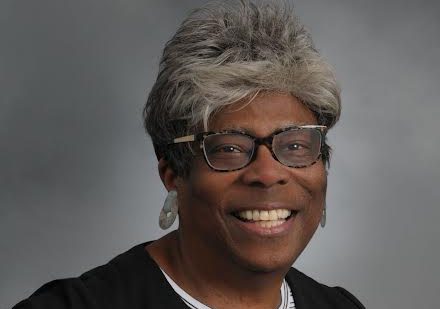Distinguished Professor has a long history of accomplishments in antiviral drug research
Carol A. Carter, PhD, SUNY Distinguished Professor in the Department of Microbiology and Immunology at the Stony Brook University Renaissance School of Medicine (RSOM), was elected as a member to the U.S. National Academy of Sciences (NAS), a society made up of the country’s leading researchers.
According to NAS, members are elected to the National Academy of Sciences in recognition of their distinguished and continuing achievements in original research. Election to the National Academy of Sciences is considered one of the highest honors that a scientist can receive.
Carter is the eighteenth faculty member at Stony Brook University elected to the NAS. She is only the second elected member from the RSOM. World-renowned virologist and Emeritus Professor in the Department of Microbiology and Immunology Eckard Wimmer was elected in 2012.
“Carol has been active in translational research and has exploited her discoveries for the identification of new antiviral compounds,” says David Thanassi, PhD, Professor and Zhang Family Endowed Chair of the Department of Microbiology and Immunology. “Her research illustrates the power of basic science to lead to unexpected insights and generate new avenues for therapeutic development.”
At the NAS Annual Meeting on April 30, 120 new members were elected. This brings the total number of NAS members to 2,617 since the society’s inception in 1863. Members are elected by their peers for their outstanding research. Approximately 500 NAS members have earned a Nobel Prize.
“Frankly speaking, I’m stunned, thrilled and honored to be joining the company of those I have admired throughout my career,” says Carter. “This recognition from the Academy opens the door to the possibility of shining more light on feasible ways to approach targeting non-traditional cellular systems for drug discovery, systems that have long been exploited by viral pathogens for their production,” adds Carter, also an Adjunct Professor in the Department of Physiology & Biophysics within the RSOM, and a Fellow of the American Academy of Microbiology.
Carter is best known as an early pioneer in HIV research. At the onset of the AIDS pandemic, she advanced understanding of the viral-encoded protease and purified the viral capsid protein for structural and biochemical studies. She has also conducted research on Epstein-Barr Virus (EBV) and Severe Acute Respiratory Syndrome Coronavirus Virus-2 (SARS CoV-2), pathogens causing organ transplant rejection and COVID-19, respectively.
In 2001, her groundbreaking research, published in PNAS, identified an interaction between HIV and a host protein (Tsg101) that is essential for the assembly and budding of HIV viral particles from infected cells. Her findings opened a new field of research on host factors in microbial pathogenesis and suggested the possibility of targeting host proteins for developing antimicrobial therapeutics, with implications beyond HIV.
A resident of Stony Brook, Carter has also served as a member of the National Institute of Allergy and Infectious Diseases Advisory Council from 2007 to 2011. She received the Stony Brook University Presidential Award for Promoting Diversity and Academic Excellence in 2013, and the Suffolk County, N.Y., Martin Luther King Jr Commission Public Service Award in 2016.
Currently, she collaborates with Cold Spring Harbor Laboratory DNA Learning Center staff and Stony Brook Faculty in the RSOM, the School of Marine and Atmospheric Sciences, School of Health Professions, and the Office of Undergraduate Admissions, in efforts to mentor high school students interested in pursuing careers in health sciences professions.
She continues her research focus on several areas, including the role of cellular proteins in assembly of HIV and other members of the Retrovirus family; Tsg101 structure/function analysis; and antiviral drug development, to name a few.
Carol A. Carter received her PhD from Yale University in 1972. She has been a faculty member at Stony Brook University since 1975.





